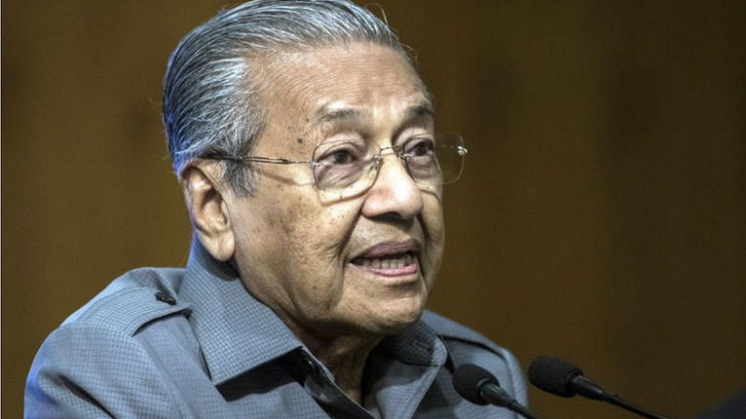
News -
Did PM Mahathir steal the national car project idea?
Malaysia’s Prime Minister Mahathir Mohamad claims to have plagiarised the idea of an upcoming national car brand from the people.
“I have always listened to people. A lot of ideas are actually plagiarised from people,” he told The Straits Times. He said this is the case for the proposal to build a new national car.
Although less as a plagiarism count and more of a political maneuver to seek approval for his initiative, Mahathir is intent on starting a wholly new national car company since a stake in Proton has been sold to Chinese car company Geely.
Malaysia’s second national car, Perodua, is the biggest manufacturer of cars in the country but it is owned partially by Japan’s Daihatsu Motor, making it a company that is not fully owned by the nation.
Mahathir’s plan for a new fully-owned national car company is not a wholly popular one as Malaysians question whether there is a need for another one, when more could be done to improve public transport in the country.
It is rare for politicians to admit that his political ideas or actions came from the people. But it is not at all rare for politicians to plagiarise ideas from other people.
Melania Trump has been caught for stealing parts of her 2016 Republican National Convention speech from Michelle Obama’s convention speech in 2008. But she obviously did not write her speech. The words came from a speechwriter, but were not caught by her staff.
But Mrs Trump is in good company, as plagiarism seems to be common among politicians.
In 1987, former US vice-president Joe Biden was a senator in Delaware running for president. But he was found to have plagiarised part of his speech from a political ad by the UK Labour leader, Neil Kinnock. His copying from another politician across the pond ensured the end of Biden’s campaign and he dropped out six months before the first primary.
Russian President Vladimir Putin claims to have a doctorate from St. Petersburg Mining Institute. But his dissertation was found to have stolen 16 pages from a 1978 textbook, Strategic Planning and Public Policy, written by University of Pittsburgh Professors David I. Cleland and William R. King.
Donald Trump, a politician who has played fast and loose with facts, and attribution, once published an opinion piece in a newspaper that was found to have blatantly plagiarised an article written days earlier under former rival Ben Carson’s name.
Further back in time, senator Joseph McCarthy in 1950 delivered an anti-Communist speech in West Virginia that was later found out to have contained passages that were copied from a speech by Richard Nixon two weeks earlier.
This issue of plagiarism in politics brings to mind the dilemma of all artists, who must absorb large volumes of previous works, and in turn have to produce art that contains elements of originality while showing an acceptable amount of their influences, without accidentally committing plagiarism. Only the best can have the cachet to dismiss claims of plagiarism or boast total originality.
It is also worth noting that unlike the idea theft cases we usually see in PitchMark, similar transgressions in the political sphere are rarely punished. The culprit might be ridiculed, and the parties involved might use the words “politically motivated” to justify the attacks or to gain sympathy. This extends even to government programmes for example. States and nations copy each other’s programmes without giving credit. And in turn, politicians routinely use ideas from their peers and colleagues to push a similar agenda. But plagiarism is rarely prosecuted. It just takes time for the issue to blow over and for the news cycle to focus people’s attention elsewhere.
At the end of the day, ideas cannot be copyrighted. And Mahathir’s claim that he copied the idea from the people has no potential legal backlash. Maybe a political one if the plan backfires. So far, only four in 10 Malaysians approve of the idea in a survey.
